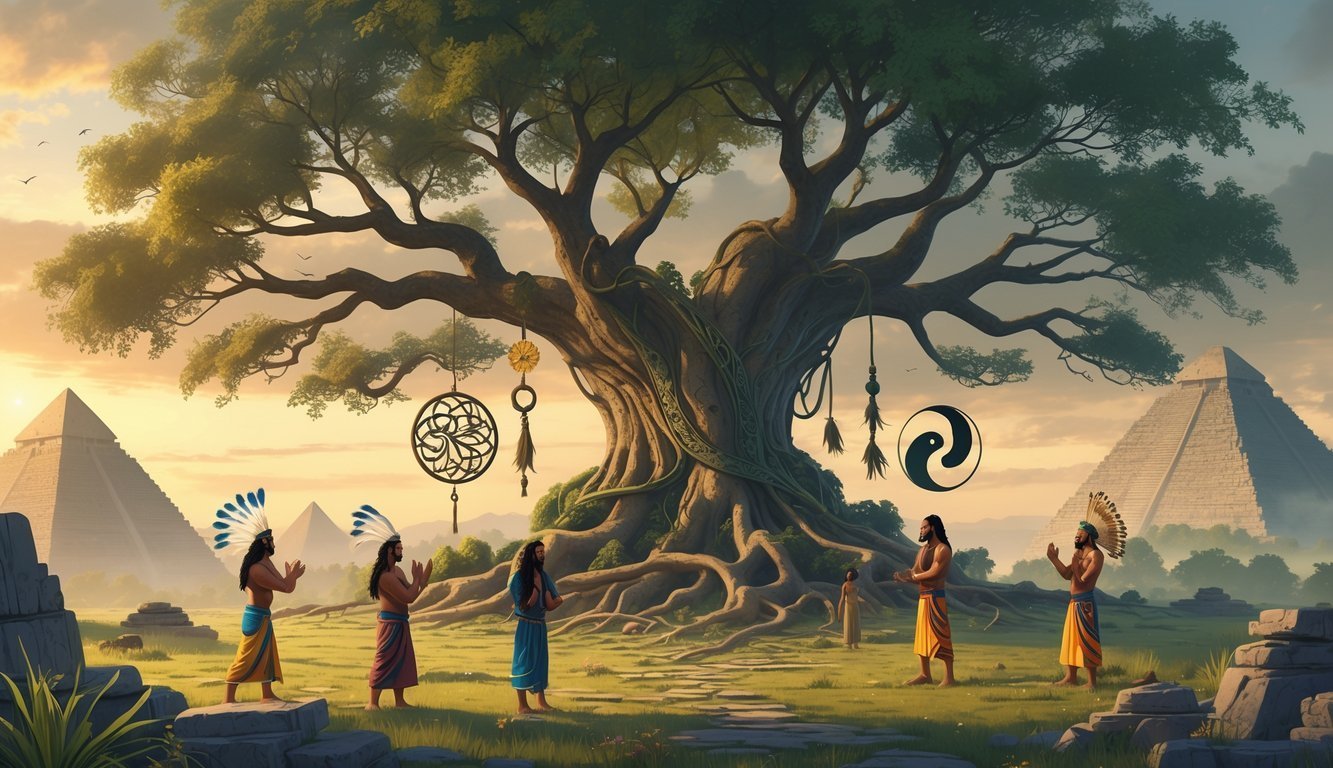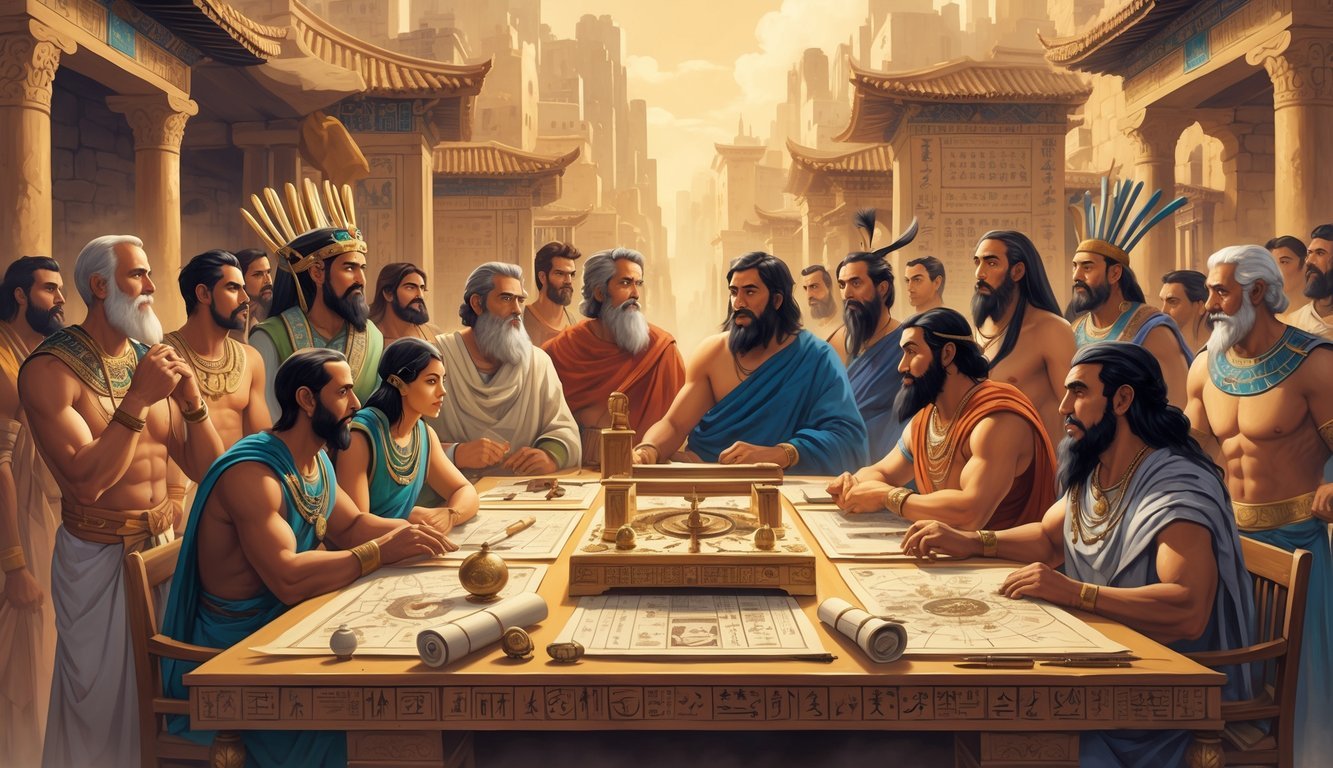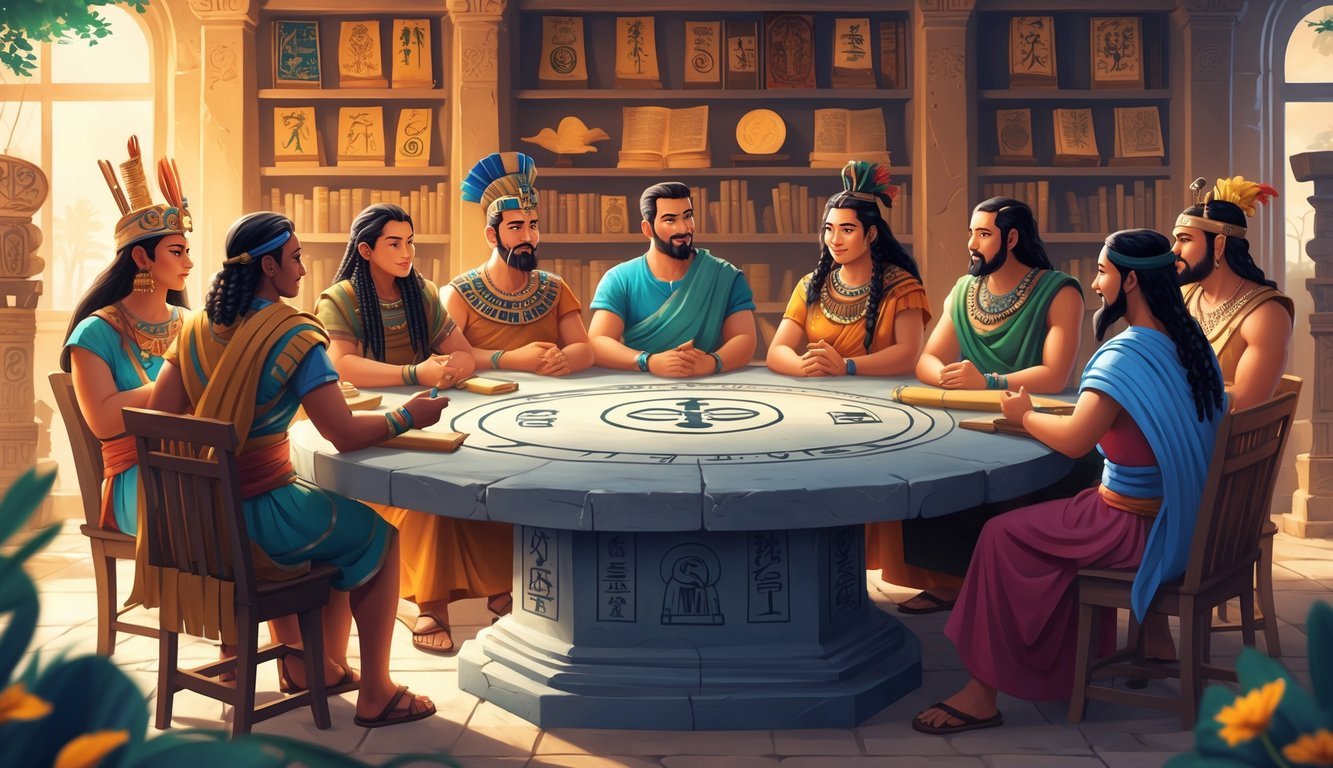PsychNewsDaily Publishers
100 Summit Drive
Burlington, MA, 01803
Telephone: (320) 349-2484
PsychNewsDaily Publishers
100 Summit Drive
Burlington, MA, 01803
Telephone: (320) 349-2484
Ancient belief systems shaped societies by providing explanations for natural phenomena, influencing laws, community organization, and reflecting values through rituals, myths, and spiritual connections.

Back in the day, ancient beliefs gave early societies their best shot at explaining everything—from the weather to the mysteries of life and death. People tied these ideas to gods, spirits, or natural forces.
If you look closely, understanding these beliefs actually helps you see how people shaped their cultures and values way back when.
These weren’t just old stories—they really influenced how societies made laws, held power, and even studied nature. Most ancient cultures believed in lots of gods, each with different jobs, and those beliefs shaped how people lived and worked together.
Learning about these views? It gives you a window into how human thinking and culture grew up over time.
You’ll probably notice connections between old and new ways of seeing the world. It’s kind of wild how stories and practices from long ago still pop up in life today, making ancient beliefs super important for understanding human history.

Ancient cultures built their worldviews around shared ideas about life, nature, and the spirit world. These beliefs shaped how people lived, healed, and connected with their communities.
They also influenced how people related to the unseen forces around them.
You’ll find a lot of early belief systems centered on gods, spirits, or natural forces. Animism—the idea that everything has a spirit—was pretty common, along with polytheism, which meant worshipping many gods.
Some groups later adopted monotheism and started believing in just one god.
Rituals played a huge part in all this. People used them to show respect, ask for help, or mark big moments like births, deaths, or harvests.
Rituals often brought in symbols, music, dance, or offerings to connect with the spiritual world.
Belief systems and rituals helped keep things organized. They gave people a sense of purpose and brought communities together.
Spiritual connection was all about feeling close to gods, spirits, or nature. People told stories, prayed, and held ceremonies to build that link.
Sometimes, they wrote these spiritual ideas down in sacred texts.
Sacred texts acted as guides for how to live and worship. They shared rules, myths, and teachings that passed from one generation to the next.
For example, ancient texts might explain what life means, what humans are supposed to do, or what happens after death.
These texts and spiritual practices shaped the culture’s values and laws.
Shamans played a big role in ancient communities. They served as go-betweens for people and the spirit world.
Shamans led rituals, read signs, and helped with healing. Traditional healing mixed spiritual and natural methods.
Shamans used herbs, chants, and ceremonies to treat sickness. They believed health depended on keeping body, mind, and spirit in balance.
By caring for health and wellness, shamans helped the whole community stay strong. They also kept important knowledge about medicine and nature alive.

Digging into ancient beliefs lets you see how early ideas shaped society, politics, and science. These influences worked together, creating systems of justice, rules for living, and ways of knowing that still matter.
In ancient Greece, especially Athens, justice and virtue drove political thought. People believed a fair society only worked if citizens acted with virtue.
Democracy grew out of this, with everyone’s voice counting in government.
Justice wasn’t just about laws—it was tied up with living a good life, blending ethics and politics. In Egypt, justice connected to divine order, often shown by gods like Osiris.
These ideas shaped how societies worked and how people thought about happiness and fairness. Democracy taught people to share power, while virtue encouraged them to act with honor.
Ancient knowledge wasn’t just about reason or politics. People also believed in magic and other ways of understanding the world.
Many cultures used magic to explain things they couldn’t control or figure out.
During the Middle Ages, antiquarianism took off—people kept old traditions and texts about ancient magic and customs. It was a way to keep cultural history alive and learn from the past.
These ideas showed that knowledge wasn’t just one thing. Social context and culture shaped what people accepted as true.
This variety actually helped early science grow by encouraging curiosity beyond the usual ideas.

You’ll learn about ritual habits, the influence of gods in social life, and how beliefs shaped ancient societies. These ideas explain how people understood the world and acted in it.
Many ancient people practiced rituals like prayer, sacrifice, and offerings to gods or spirits. Temples and sacred sites often became centers for worship and community events.
Divination, meditation, and festivals were also common ways to connect with the divine or look for guidance.
Greek gods and myths guided daily life, politics, and art. Religious festivals like the Olympic Games honored the gods and brought people together.
Priests and oracles advised leaders and citizens. Temples showed respect and reinforced social order.
Religions like the worship of Mesopotamian gods or the Norse pantheon have mostly faded away. These faiths used rituals and stories to explain natural events and human behavior.
Some ideas from them still echo in modern beliefs.
Religion united people by creating shared values and rules. Leaders often claimed divine right to rule, which helped them hold power.
Building monuments like pyramids showed devotion and organized labor, helping cities grow.
Myths explain why the world is the way it is, often teaching lessons about good behavior. They reflect what a society cares about—like bravery, honor, or respect for nature.
These stories passed down ideas and shaped cultural identity.
People have held onto beliefs in an afterlife, the power of nature, and respect for ancestors for centuries. You can see ideas like karma or divine justice popping up in all sorts of cultures.
These beliefs still shape how folks think about life, death, and what’s right or wrong.